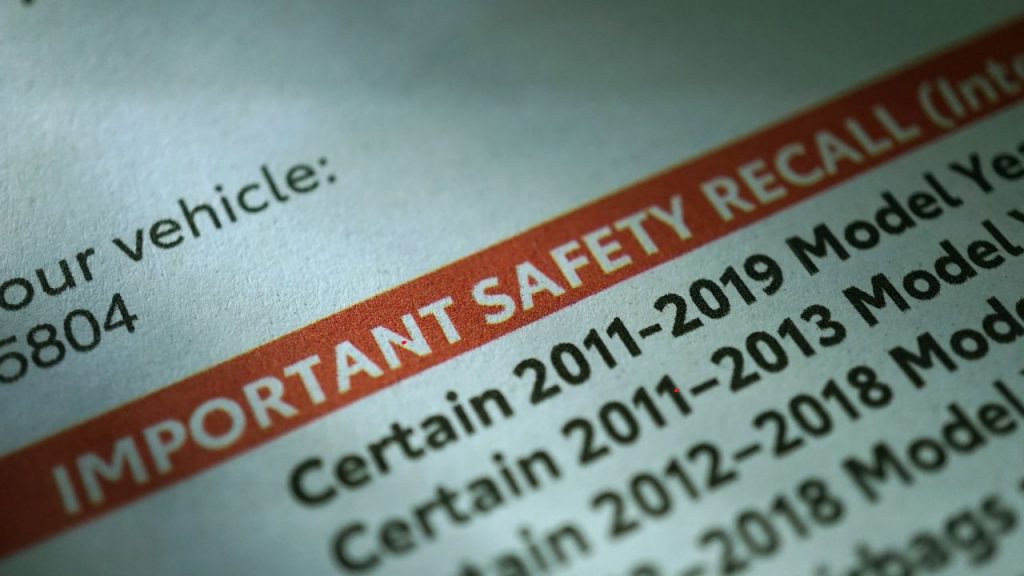Understanding Vehicle Recalls and Why They Matter
Vehicle recalls are a crucial part of road safety, ensuring that cars with defects or safety concerns are repaired before they cause accidents or injuries. Every year, millions of vehicles are recalled in the United States due to issues ranging from faulty airbags to brake failures. If you’re buying a used car or want to ensure your current vehicle is safe, performing an NHTSA recall check should be a priority.

The National Highway Traffic Safety Administration (NHTSA) plays a key role in overseeing vehicle recalls, offering a free lookup tool that allows car owners and buyers to check for safety recalls using a Vehicle Identification Number (VIN). Additionally, platforms like VinCheck.info provide comprehensive VIN reports that include recall history, making it easier for consumers to stay informed.
In this guide, we’ll explore how VIN decoding ties into recall checks, how the NHTSA recall check works, and how VinCheck.info offers a valuable alternative for recall history searches.
What is a VIN, and How Does It Relate to Recalls?
A Vehicle Identification Number (VIN) is a 17-character unique identifier assigned to every vehicle manufactured after 1981. Think of it as a car’s fingerprint—it provides critical details about a vehicle, including its make, model, year, country of manufacture, and factory of origin.
When a manufacturer or the NHTSA issues a recall, they use VINs to identify the affected vehicles. Since recalls can be specific to certain production batches or configurations, the VIN helps determine if a particular vehicle is part of a recall.
To check for open recalls, car owners or buyers can enter the VIN into an online database, such as the one provided by NHTSA or VinCheck.info, to see if the vehicle requires urgent repairs.
How the NHTSA Recall Check Works
The NHTSA recall check is a free service provided by the U.S. government. It allows consumers to enter their VIN and receive real-time information about any unresolved safety recalls issued within the past 15 years. Here’s how it works:
- Enter the VIN – Go to the NHTSA VIN Decoder and type in the 17-character VIN.
- Review Recall Results – If there are any outstanding recalls, the tool will display details, including the recall date, affected vehicle parts, and manufacturer instructions.
- Schedule a Repair – If your vehicle has an open recall, the manufacturer is legally required to provide a free repair at an authorized dealership.
However, the NHTSA recall check has limitations. It only shows open recalls and does not provide a full recall history of the vehicle. This means that if a past recall has already been addressed, it won’t appear in the results.
VinCheck.info: A More Comprehensive Recall Check
While the NHTSA recall check is useful for verifying active recalls, it does not offer full recall history. This is where VinCheck.info provides added value.
VinCheck.info is a free VIN check service that offers detailed recall history, along with other essential vehicle information, including:
- Past and Present Recalls – Unlike the NHTSA recall check, VinCheck.info includes both open and previously resolved recalls, helping buyers see if a vehicle has a history of repeated safety issues.
- Vehicle Specifications – Users can access factory details, including engine size, transmission type, and standard safety features.
- Market Value and Ownership History – Get an estimate of the vehicle’s worth and review past ownership details.
- Title Branding and Theft Records – Check for salvage titles, flood damage, and theft records to avoid buying a problematic vehicle.
How to Check for Recalls Using VinCheck.info
- Visit the VinCheck.info VIN Decoder.
- Enter the VIN.
- View the recall history along with other detailed vehicle insights.
For used car buyers, an NHTSA recall check is just as important as a title or accident history check. Here’s why:
1. Ensures Vehicle Safety
Many recalls are issued for critical safety defects, such as faulty airbags or malfunctioning brakes. Checking recall history helps ensure the vehicle is safe to drive.
2. Prevents Costly Repairs
Manufacturers cover recall repairs for free, but if you buy a vehicle with an unresolved recall and ignore it, it could lead to expensive out-of-pocket repairs or, worse, accidents.
3. Reveals Potential Red Flags
If a vehicle has multiple past recalls for the same issue, it may indicate a recurring problem that could compromise safety and performance.
4. Affects Resale Value
Cars with open recalls may have a lower resale value, as buyers might hesitate to purchase a vehicle that requires immediate repair.
By checking both open recalls (via NHTSA) and recall history (via VinCheck.info), consumers can make safer and more informed vehicle decisions.
Final Thoughts
An NHTSA recall check should be a routine step for every car owner and used car buyer. The NHTSA recall lookup provides a quick way to check for current safety recalls, while VinCheck.info goes a step further by offering full recall history and additional vehicle insights.
Whether you’re verifying your car’s safety or researching a used vehicle before purchase, taking a few minutes to check the VIN can save you from future headaches.
🔎 Check your VIN today with these tools:
- NHTSA VIN Decoder – For active recall checks.
- VinCheck.info VIN Decoder – For complete recall history and more.
🚗 Don’t take chances with vehicle safety—perform an NHTSA recall check now! 🚗